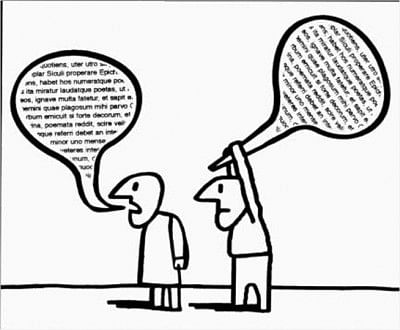Using abusive words at JS

Photo: Igor Kopelnitsky.tif
Use of unparliamentary language has become a culture in the Jatiya Sangsad (JS) or National Assembly. In fact, the term unparliamentary is rather too broad to convey its exact connotation, especially in the particular context. We are not aware if any other democracy in the world has this matchless culture of addressing the leaders of their opponent party with violently offensive and unspeakable words. But it is so common in our Parliament that the lawmakers have no qualm about it.
Exchange of vile language became so intense in the Parliament last Wednesday (March 23) in our parliament that a lawmaker from the Treasury bench was compelled to protest vehemently. Abdul Matin Khasru, who was law minister during Awami League's (AL) previous stint in power found the invective being traded between members of Parliament from the ruling party and the opposition Bangladesh Nationalist Party (BNP) so intolerable that he compared he compared that with the kind of abusive language used in the "red light districts."
Even the Speaker of the House expressed his helpless in the face of swear words-riddled tirades the parliamentarians were hurling at one another. Though the barrage of rude words used in the JS by the "honourable" Members of Parliament (MPs) against one another -- between the Treasury and Opposition members, to be precise -- are generally expunged from the minutes of the discussions that hardly matters in practice. For once those foul words are uttered and are on air, what is the use of expunging them from records?
But while parliamentarian Matin Khasru was forced in desperation to draw the "red light district" analogy to describe the obscenities being hurled at each other in that JS session, he was not exaggerating. Interestingly, as if not to be outmatched by their male colleagues, some women MPs, too, were found engaged in a similar exercise of showering their opponent party leaders, no matter if they are alive or dead, with all kinds of abuse in existence.
It was at least one instance that the lawmakers were oblivious of their gender differences and proved to be equally at ease in calling one another (of course between opposite benches) names! A rare occasion of oneness, indeed!
The once-customary commonly held belief that parliament was the domain of the educated and cultured people has of late became of a tale of old. But those good words have lost their usual meaning nowadays. One would hardly like to use those good words when one is talking about our parliamentary discourses. One of our journalists in an exclusive of his in this paper used the term "debate" to describe the exchange of tirades in the JS.
If truth be told, the proper term is yet to be invented or coined to relate what happens during JS sessions. Guardians of children avoid listening to the parliamentary sessions for fear of spoiling them. One wonders if the MPs who with a vengeance resort to shouting such swearwords at their opponents in the JS would really want their elders and children to hear those unspeakable words in their drawing room. Had not the media, especially the newspapers, self-censored the so-called "debates" in printed form, then no one would dare to bring those papers to the breakfast table.
It is hardly surprising that many political leaders are used to throwing a tantrum in that manner unabashedly show up in public functions like heroes. Shame is a word that is not in their dictionary.
Do these lawmakers have no sympathy for the people who took the trouble of standing in long queues to cast their votes for them? Or have our parliamentarians taken their constituents for granted? It, however, will not be fair to say "our parliamentarians" here because we have also MPs of the stature of Abdul Matin Khasru, who have protested against such practice in the JS in the strongest terms and justly criticised them in the strongest possible terms in the House.
But why the parliamentary debates have come to such a pass? When have decency and civility bidden the JS farewell? Is it only the confrontational nature of our politics or something with a deeper root behind the unhealthy growth of this "culture"? It is for the researchers in social psychology to unearth its cause. Aghast at manner of our MPs' speaking in Parliament, the well-meaning have been giving vent to their resentments in both the electronic and the print media.
But it is clear from their stubbornness in this particular aspect of their behaviour at the JS, criticism in the media is not enough to persuade the errant lawmakers to refrain from their obnoxious culture of verbal abuse in the House. Even the plea of the Speaker Abdul Hamid in God's name could not prevail upon those lawmakers hell bent on using abusive words.
To all appearances, pleas and requests are not adequate to make our abuse-happy lawmakers stop. Mere words are generally lost on them. The Speaker of House has a big role to play. It will perhaps be necessary to introduce the provision to penalise such lawmakers who use abusive words in the House. Without these means, making JS effective and functional will remain a far cry.

 For all latest news, follow The Daily Star's Google News channel.
For all latest news, follow The Daily Star's Google News channel. 



Comments